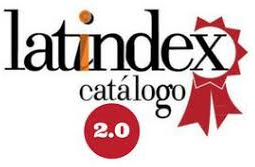| REDES DE CONOCIMIENTO EN TORNO AL APRENDIZAJE DE LA COMPLEJIDAD ORGANIZACIONAL EDUCATIVA |
|
|
por Sánchez-Sánchez, Arturo
UAT, Tlaxcala
|
Sánchez-Sánchez, Arturo - Hernández-Gracia, Tirso J. - Quintero- Soto, María L. - Espinosa-Morales, Francisco - García Lirios, Cruz (17-10-2018). REDES DE CONOCIMIENTO EN TORNO AL APRENDIZAJE DE LA COMPLEJIDAD ORGANIZACIONAL EDUCATIVA.
HOLOGRAMATICA - Facultad de Ciencias Sociales UNLZ
Año XV, Número 28, V2, pp.223-253
ISSN 1668-5024
URL del Documento : https://www.cienciared.com.ar/ra/doc.php?n=2135
URL de la Revista : https://www.hologramatica.com.ar
|
 |
Documento Completo
(PDF) |
| 679629 Bytes |
|
|
|
| RESUMEN: El objetivo del presente estudio es explicar el desempeño de una red de conocimiento, entendida como un sistema de gestión, producción y transferencia entre las demandas del entorno y las capacidades de la organización. Se realizó un estudio no experimental, transversal y correlacional con una selección muestral no probabilística de 300 administrativos, docentes y estudiantes de una universidad pública, considerando su interacción en prácticas profesionales. El grado de aprendizaje de la red de conocimiento siguió un patrón selectivo ya que, las posibles combinaciones de las redes de conocimiento sugieren que la capa de entrada al estar regulada por la capa intermedia refleja, en la capa de salida; una gestión, producción y transferencia de conocimiento en función de las tareas más que de los objetivos o las metas. Se advierten líneas de investigación alusivas a las posibles relaciones entre factores tales como la motivación al logro, la utilidad esperada o la facilidad de llevar a cabo una tarea en red como determinantes del clima de tareas, principal factor emergente de la red de conocimiento.
|
|
| PALABRAS CLAVE: red, gestión, administración, conocimiento, aprendizaje |
|
|
|
| ABSTRACT: The objective of this study is to explain the performance of a knowledge network, understood as a management, production and transfer system between the demands of the environment and the capabilities of the organization. A non-experimental, cross-sectional and correlational study was carried out with a non-probabilistic sample selection of 300 administrators, teachers and students of a public university, considering their interaction in professional practices. The degree of learning of the knowledge network followed a selective pattern since, the possible combinations of knowledge networks suggest that the input layer, when regulated by the intermediate layer, reflects in the output layer; management, production and transfer of knowledge in terms of tasks rather than objectives or goals. There are lines of research alluding to the possible relationships between factors such as the motivation to achieve, the expected utility or the ease of carrying out a network task as determinants of the task climate, the main emerging factor of the knowledge network.
|
|
| KEYWORDS: net, management, administration, knowledge, learning |
|
|
|
ISSN 1668-5024 |
|
URL del Documento:
https://www.cienciared.com.ar/ra/doc.php?n=2135
URL de la Revista:
https://www.hologramatica.com.ar
|
|
|
Volver
|






